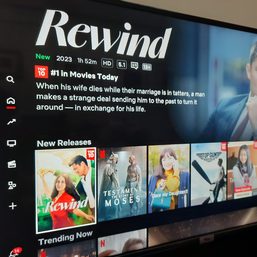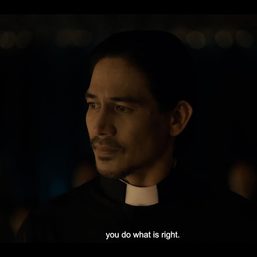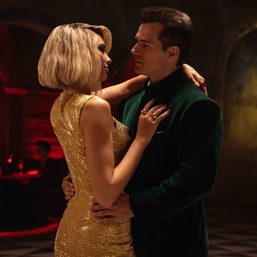SUMMARY
This is AI generated summarization, which may have errors. For context, always refer to the full article.

Mae Cruz’s Everyday I Love You is blatantly a product of formula. It starts with its two would-be lovers geographically and emotionally apart, both burdened by either personal issues or family problems. It ends with them together, cleared of conflicts and all too ready to ride a joyous future on the wings of love. (READ: Enrique Gil, Liza Soberano on their challenging new movie roles)
It is the middle part that would carry the film to places notwithstanding the crutch of formula. Unfortunately, the meat of Everyday I Love You is as contrived as its beginning and end. It is a staggered exercise in doing away logic for erstwhile flashes of color and charm. Simply put, it’s not worth it. This is escapism at its most contrived. (WATCH: Liza, Enrique, Gerald in ‘Everyday I love You’ official trailer)
The lovely lass and her brooding beau
At the center of the film is Audrey (Liza Soberano), a pretty lass who makes sure that she records everything she does on video for the sake of Tristan (Gerald Anderson), her boyfriend who is in a coma. She is beautiful. When she rides around on her little scooter, she does so with an air of charisma that is impossible to ignore.

In other words, Cruz and her team of writers have clearly put such an effort to portray Audrey as an exquisite girl, one who is lovely both on the inside and the outside. Sadly, the purposeful writing ends there as the film surrounds Audrey with lovers of questionable personalities.
Tristan, whom the audience only gets to know via flashbacks of him mostly brooding or talking to Audrey in the most suffocating way, is a man who is impossible to develop romantic feelings for. He is a ball of negativity, an obnoxious character that is difficult to love.
Guilt versus love
Guilt is the proper emotion here. Audrey’s dedication to Tristan is a result of guilt, not love.

However, Cruz and her writers are adamant in painting Audrey as this ideal girlfriend who is brimming with love that they confuse the emotions to disastrous effect. The result is a love triangle that is absolutely bewildering because the audience is only provided choices as to who among Audrey’s choices are worthy of her love.
If the irrational emotion of guilt were better fleshed out, with Audrey agonizing over her boyfriend’s ailment rather than fantasizing about a relationship that was never depicted as ideal or at least tolerable, then Audrey’s predicament would have been more understandable. Unfortunately, the scope of the film’s appreciation of relationships is disastrously limited to romance, leaving no room for complications.
This is why the promise of a brand new romance with Ethan (Enrique Gil) poses no real moral or emotional conflict. While Ethan has quirks and various other dilemmas to face, they are insignificant in the midst of the torturous relationship Audrey has with Tristan, which Cruz makes sure to underplay to suit the spotlight given to the blossoming relationship between Soberano and Gil’s characters.

Overt manipulation
The film is composed of polished scenes of overt manipulation.
The goal here isn’t to explore the crisis of a young woman caught in between two loves. It is simply to further cultivate a love team with cheerful moments of glossy images of longing looks, enthralling embraces, and every other gesture of dreamy fakery that the studio’s marketing gods can think of.

In that case, the film works. The film has been designed so that all the conflicts and resolutions are lopsided in favor of the love team’s triumph. Everything else is either overshadowed or completely ignored, to the detriment of any real depth or authenticity in its tiny efforts in portraying the shallow form of romance it wants to portray.
In the end, the love team’s fans are bound to be happy and content. Everybody else, however, will be left scratching their heads as to why the word love is even in the film’s utterly generic title when the love the film depicts is the type that is bereft of any real substance. – Rappler.com

Francis Joseph Cruz litigates for a living and writes about cinema for fun. Thefirst Filipino movie he saw in the theaters was Carlo J. Caparas’ ‘Tirad Pass.’ Since then, he’s been on a mission to find better memories with Philippine cinema. Profile photo by Fatcat Studios
Add a comment
How does this make you feel?















There are no comments yet. Add your comment to start the conversation.